Find Help
More Items From Ergsy search
-

Antibiotics and You: An introduction to antibiotic resistant infections
Relevance: 100%
-

What is antibiotic resistance?
Relevance: 90%
-

Why is antibiotic resistance a problem?
Relevance: 86%
-

Why is antibiotic resistance a concern with gonorrhoea?
Relevance: 81%
-

Do antibiotics work on viral infections?
Relevance: 80%
-

Can taking antibiotics frequently cause resistance?
Relevance: 80%
-
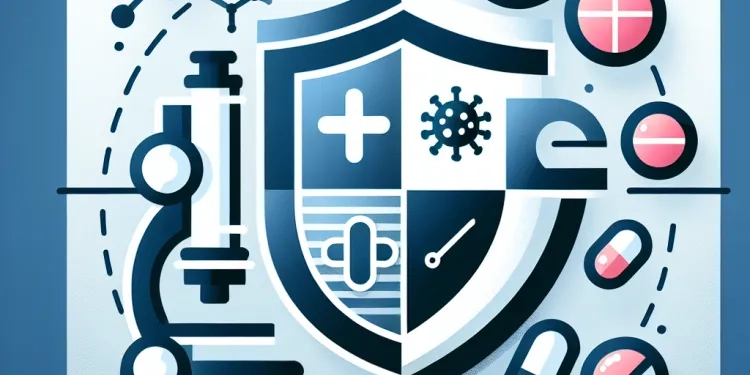
Can the bubonic plague become resistant to antibiotics?
Relevance: 76%
-

Efforts to Combat Antibiotic Resistance Gain Momentum with New Research Initiatives
Relevance: 71%
-

Is it bad to take antibiotics?
Relevance: 71%
-

Can taking antibiotics be harmful?
Relevance: 68%
-

Is taking antibiotics always bad?
Relevance: 68%
-
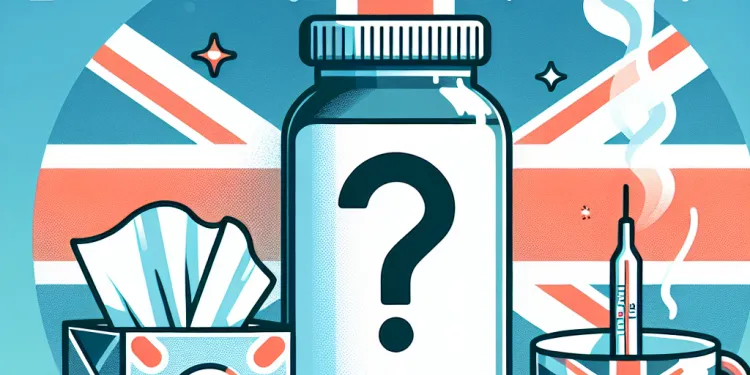
Can I take antibiotics for a cold?
Relevance: 65%
-

Should I stop taking antibiotics if I feel better?
Relevance: 63%
-

What antibiotics are used to treat gonorrhoea?
Relevance: 62%
-

What are common side effects of antibiotics?
Relevance: 61%
-
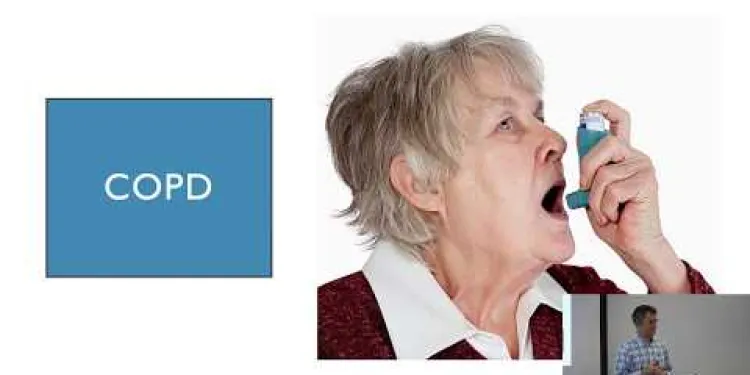
Acute COPD in Adults: Antibiotics or not - Dr Nick Francis
Relevance: 60%
-

Can antibiotics treat norovirus?
Relevance: 56%
-
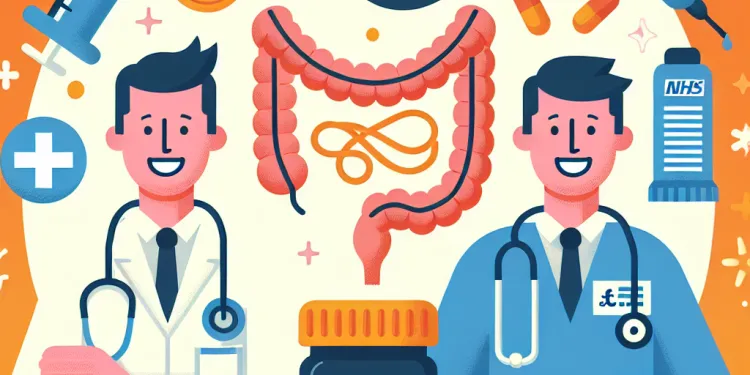
Can appendicitis be treated with antibiotics?
Relevance: 53%
-
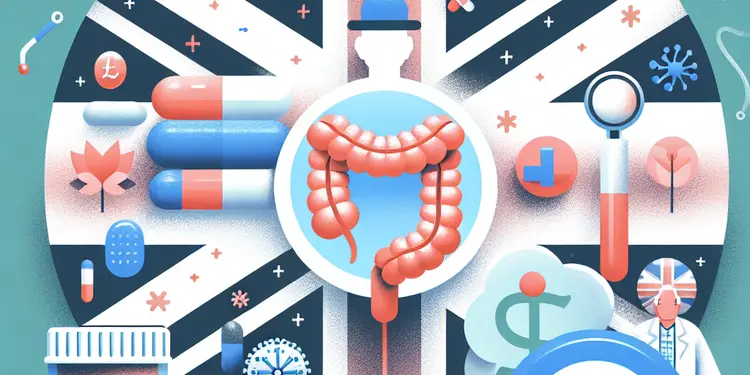
How do antibiotics affect gut health, especially in older adults?
Relevance: 53%
-

How effective are antibiotics in treating Lyme disease?
Relevance: 52%
-

2 episodes of cellulitis and been given antibiotics but the redness doesn't seem to be improving?
Relevance: 51%
-
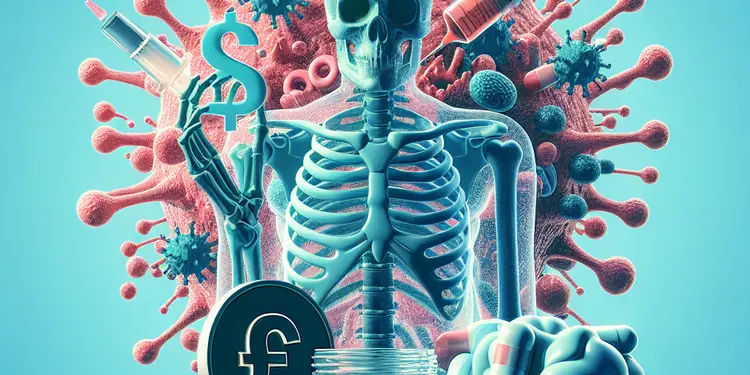
Can antibiotics alone cure flesh-eating disease?
Relevance: 49%
-

GPs Warn Antibiotic Overuse Could Lead to Superbug Crisis
Relevance: 41%
-

Mycobacterium chimaera infection
Relevance: 35%
-

What types of antibiotics are typically used to treat Lyme disease?
Relevance: 34%
-

Can E. coli infections be treated?
Relevance: 33%
-

Self care: Treating ear infections
Relevance: 33%
-

Can you still get gonorrhoea after treatment?
Relevance: 32%
-

Is there a vaccine for gonorrhoea?
Relevance: 32%
-

Can gonorrhoea infect areas other than the genital organs?
Relevance: 31%
-

What is Gonorrhoea?
Relevance: 30%
-
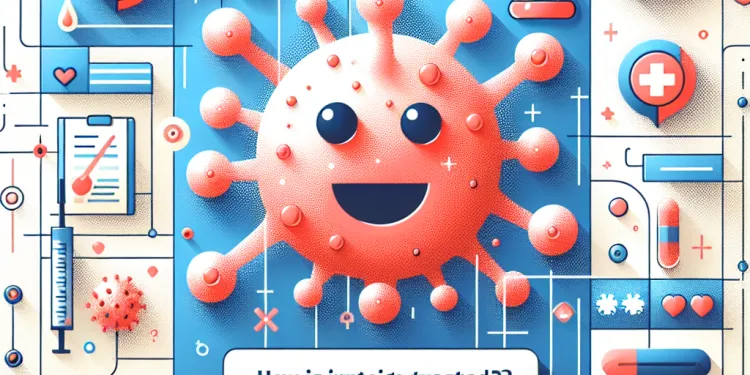
How is impetigo treated?
Relevance: 30%
-
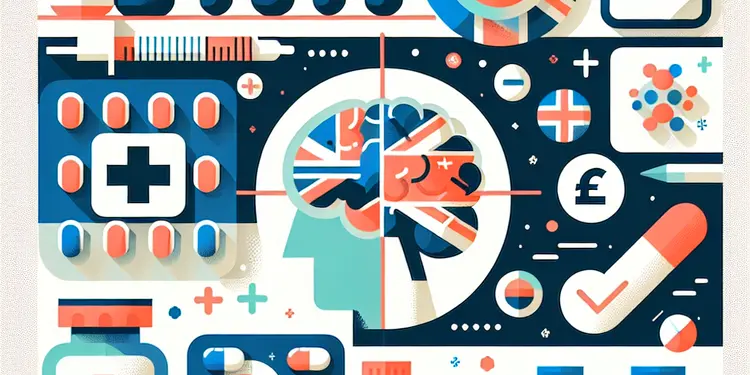
What is the treatment for bacterial meningitis?
Relevance: 29%
-

MRSA Bug
Relevance: 29%
-
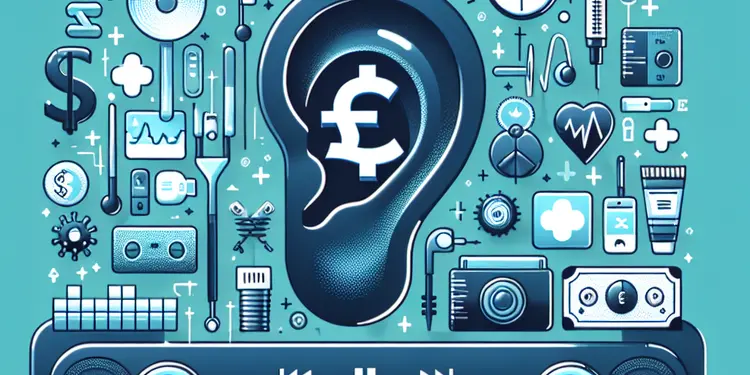
Can ear infections lead to tinnitus?
Relevance: 27%
-
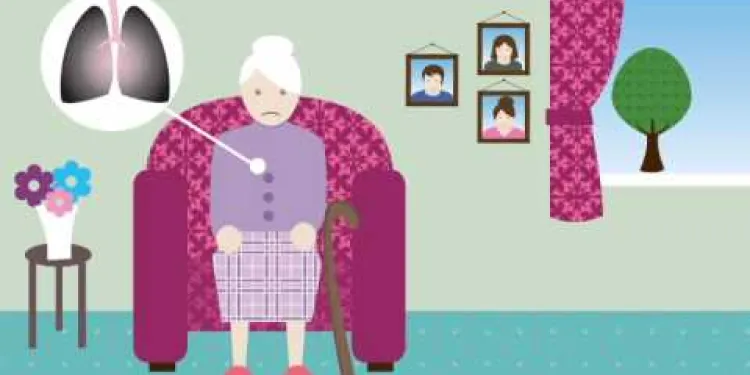
Dorothy's Story (Falls/Chest Infection)
Relevance: 27%
-

Sexually transmitted infections STIs
Relevance: 27%
-
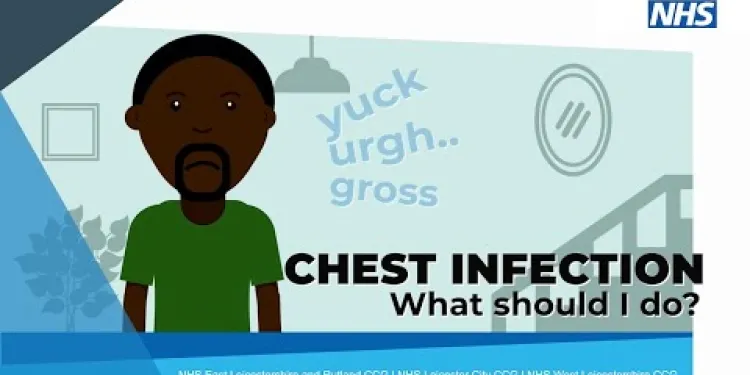
Chest infection: what should I do?
Relevance: 27%
-

How can I prevent the spread of impetigo?
Relevance: 25%
-
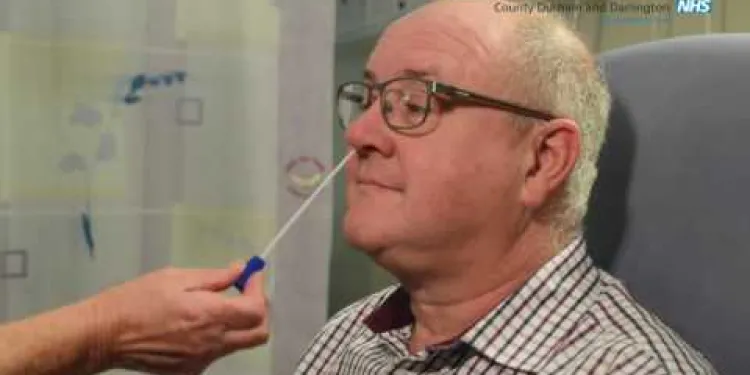
MRSA Screening at County Durham and Darlington NHS Foundation Trust
Relevance: 25%
Antibiotics and You: An Introduction to Antibiotic Resistant Infections
Understanding Antibiotics
Antibiotics are powerful medications used to treat bacterial infections. They work by either killing bacteria or inhibiting their growth. Common antibiotics include penicillin, amoxicillin, and doxycycline. These medications have significantly improved health outcomes across the United Kingdom by treating a variety of bacterial infections.
What is Antibiotic Resistance?
Antibiotic resistance occurs when bacteria evolve and develop the ability to defeat the drugs designed to kill them. This phenomenon can be natural but is often accelerated by the overuse or misuse of antibiotics. In the UK, antibiotic resistance poses a serious threat to public health as it makes infections harder to treat, leading to longer hospital stays and higher medical costs.
Causes of Antibiotic Resistance
Several factors contribute to antibiotic resistance. These include the over-prescription of antibiotics, not completing prescribed antibiotic courses, and the use of antibiotics in agriculture. For instance, patients who insist on antibiotics for viral infections, like the common cold, inadvertently promote resistance. Similarly, the improper use of antibiotics in farming can lead to resistant bacteria that can transfer to humans.
How to Combat Antibiotic Resistance
The National Health Service (NHS) and healthcare providers across the UK are working tirelessly to combat antibiotic resistance. Actions you can take include following your doctor's advice, taking antibiotics only when prescribed, and completing the full course of treatment. Additionally, practicing good hygiene and staying up-to-date with vaccinations can help prevent infections and reduce the need for antibiotics.
Conclusion
Antibiotic resistance is a growing concern that requires collective action. By understanding how antibiotics work and the dangers of misuse, you can play a crucial role in preserving their effectiveness. Stay informed, follow medical guidance, and support initiatives aimed at slowing down antibiotic resistance in the UK.
Antibiotics and You: An Introduction to Antibiotic Resistant Infections
Understanding Antibiotics
Antibiotics are strong medicines. They help fight bacterial infections. They can kill bacteria or stop them from growing. Some common antibiotics are penicillin, amoxicillin, and doxycycline. These medicines have made people healthier by treating bacterial infections.
What is Antibiotic Resistance?
Sometimes, bacteria change and antibiotics no longer work on them. This is called antibiotic resistance. It can happen naturally, but it happens more when people use antibiotics too much or in the wrong way. In the UK, this is a big problem. It makes infections harder to cure and can make people stay in the hospital longer.
Causes of Antibiotic Resistance
There are reasons why antibiotic resistance happens. Doctors sometimes give too many antibiotics. Sometimes people don’t finish all their medicine. Antibiotics are also used in farming. Some people ask for antibiotics even when they have viral infections, like a cold. This can cause resistance. Also, farms use antibiotics, and these can make bacteria that move to people.
How to Combat Antibiotic Resistance
The NHS and doctors in the UK are working hard to stop antibiotic resistance. You can help by following the doctor's advice. Only take antibiotics when the doctor tells you to. Make sure to finish all your medicine. Wash your hands well and stay vaccinated to avoid getting sick. This can help use fewer antibiotics.
Conclusion
Antibiotic resistance is a big worry and needs everyone to help. By learning how antibiotics work and why not to misuse them, you can help keep them strong. Listen to doctors, learn more, and help stop antibiotic resistance in the UK.
Frequently Asked Questions
What are antibiotics?
Antibiotics are medications used to treat bacterial infections by killing bacteria or preventing their growth.
How do antibiotics work?
Antibiotics work by targeting specific features of bacterial cells, such as cell walls or protein synthesis machinery, disrupting their ability to survive or multiply.
What types of infections can antibiotics treat?
Antibiotics can treat bacterial infections such as strep throat, urinary tract infections, and certain types of pneumonia. They are not effective against viral infections like the flu or common cold.
What is antibiotic resistance?
Antibiotic resistance occurs when bacteria evolve and develop the ability to defeat the drugs designed to kill them, making infections harder to treat.
How does antibiotic resistance develop?
Antibiotic resistance develops through the overuse and misuse of antibiotics, such as not completing a prescribed course or using antibiotics for viral infections.
Why is antibiotic resistance a concern?
Antibiotic resistance is a concern because it can lead to longer-lasting infections, increased medical costs, and a higher risk of death due to ineffective treatment options.
Can I take antibiotics for a cold or flu?
No, antibiotics are ineffective against viral infections like colds and flu. Only bacterial infections can be treated with antibiotics.
What are the common side effects of antibiotics?
Common side effects of antibiotics may include nausea, diarrhea, rash, and yeast infections. Some antibiotics can also cause more serious side effects.
How should I take antibiotics if prescribed?
Always follow your healthcare provider's instructions, take the full course even if you feel better, and do not share your antibiotics with others.
What should I do if I miss a dose of antibiotics?
If you miss a dose of antibiotics, take it as soon as you remember. If it's almost time for the next dose, skip the missed dose and continue with your regular schedule. Do not double the dose.
Can drinking alcohol affect my antibiotics?
Some antibiotics may interact with alcohol, reducing their effectiveness or causing adverse effects. It's best to check with your healthcare provider or pharmacist.
What is the importance of finishing a prescribed antibiotic course?
Finishing the prescribed course ensures that all the bacteria are killed and reduces the risk of developing antibiotic-resistant bacteria.
How can I help prevent antibiotic resistance?
You can help prevent antibiotic resistance by using antibiotics only when prescribed, completing the full course, not sharing or using leftover antibiotics, and practicing good hygiene.
Are there alternatives to antibiotics for some infections?
Alternatives may include symptom relief treatments, vaccinations to prevent infections, and practicing good hygiene to reduce infection spread. Consult your healthcare provider for specific advice.
What should I do if I suspect an antibiotic-resistant infection?
If you suspect an antibiotic-resistant infection, contact your healthcare provider immediately. They may need to prescribe a different antibiotic or take other steps to manage the infection.
What are antibiotics?
Antibiotics are medicines. They help you get better when you are sick from bacteria. Bacteria are tiny germs that can make you feel unwell. Antibiotics kill these germs so you can feel better.
If you find it hard to read, you can: - Ask someone to read it with you. - Use apps or tools that read text out loud. - Look at pictures about antibiotics to help understand.
Antibiotics are medicines. They help make you better when you have a bacterial infection. They work by killing the bacteria or stopping them from growing.
How do antibiotics work?
Antibiotics are special medicines that help you get better when you are sick because of germs called bacteria. These medicines can stop bacteria from growing or kill them so you can feel well again.
If you need help to read, ask someone to read it with you. You can also try listening to it with a text-to-speech tool.
Antibiotics are medicines that can kill bad germs called bacteria. They stop the bacteria from growing or staying alive by attacking their special parts like cell walls or the things they need to make proteins.
What infections can antibiotics help with?
Antibiotics are medicine that can fight germs.
They can help with:
- Bacterial infections, like sore throats caused by bacteria.
- Ear infections.
- Some skin infections.
Antibiotics do not help with colds or the flu because those are caused by viruses.
If reading is hard, you can:
- Ask someone to read it with you.
- Listen to the words on an audiobook.
- Use a reading app for help.
Antibiotics are medicines. They can help if you have an infection caused by bacteria. They can help with things like a sore throat from bacteria, bladder infections, or some lung infections. But antibiotics do not work on viruses. This means they won’t help with a cold or the flu.
If reading is hard, try using apps that read the text aloud. Breaking long sentences into smaller parts can also help make reading easier.
What is antibiotic resistance?
Antibiotic resistance means that medicine called antibiotics stop working as well to fight germs. This happens when germs change to protect themselves from the antibiotics. When this happens, it's harder to get better from infections.
To help understand better, you can:
- Look at pictures or videos that show how germs change.
- Talk with a nurse or doctor who can explain it simply.
- Use apps or tools that explain health topics with simple words and pictures.
Antibiotic resistance happens when germs change. They learn how to fight off the medicines that are supposed to kill them. This makes infections tougher to fix.
How do germs stop medicine from working?
Sometimes, tiny germs (bacteria) can make us sick. Doctors give us medicine called antibiotics to kill these germs and help us get better.
But sometimes germs learn how to stop the medicine from working. This is called resistance.
Here's how it happens:
- Step 1: Some germs are strong. They don't get killed by the medicine right away.
- Step 2: The strong germs stay alive and make more strong germs.
- Step 3: Now there are many strong germs that the medicine cannot kill.
To help us understand and stay safe, we can:
- Ask doctors or nurses questions if we're unsure.
- Use pictures or videos to learn more about germs.
Antibiotic resistance happens when we use antibiotics too much or in the wrong way. This can happen if we don't finish all the medicine the doctor gives us or if we use antibiotics to treat viruses like the cold or flu, which they can't help.
Why is antibiotic resistance a problem?
Antibiotic resistance means medicine that fights germs does not work well anymore. This is bad because:
- Sick people may not get better quickly.
- Germs can spread to others.
- Doctors need to use stronger medicine, which might have more side effects.
To learn more, you might try:
- Talking to a doctor or nurse.
- Reading simple health books.
- Watching health videos for kids.
When germs do not die from medicine, it is a big problem. It can make people sick for a longer time. It also makes going to the doctor more expensive. It can even be very dangerous because the medicine does not work to make people better.
To make reading easier, try reading with a family member or friend. You can also listen to audiobooks or use apps that read text out loud!
Can I use antibiotics when I have a cold or the flu?
If you have a cold or the flu, antibiotics will not help you feel better. Colds and the flu are caused by viruses, and antibiotics only work on bacteria. It's important to rest, drink lots of water, and keep warm when you have a cold or the flu.
If you don't feel better after a few days, or if you feel very sick, talk to a doctor. They can tell you what to do and if you need to take any medicine.
Helpful Tips:
- Use a thermometer to check if you have a fever.
- Sleep well to help your body fight the virus.
- Use tissues when you sneeze or cough, and throw them away after.
No, antibiotics do not work on viruses like colds and flu. Antibiotics only help with infections caused by bacteria.
What are the common side effects of antibiotics?
Antibiotics are medicines that fight germs.
Sometimes antibiotics can make you feel unwell. Here are some things that might happen:
- Your tummy might hurt.
- You might feel sick or be sick (vomit).
- Sometimes you might need to go to the toilet a lot (diarrhea).
- Your skin could get a rash.
If you feel these things, tell a grown-up or a doctor.
Helpful tools: Use a calendar to track how you feel each day. You can use stickers or happy/sad faces.
If you are worried, talk to someone who can help you understand.
When you take medicine called antibiotics, you might feel sick or have a runny tummy. Your skin might get red and itchy too. Sometimes, girls can get an itchy feeling down there called a yeast infection. Some of these medicines can also cause bigger problems.
How do I take my medicine from the doctor?
Always do what your doctor or nurse tells you. Take all your medicine, even if you feel better. Do not give your medicine to anyone else.
What if I forget to take my medicine?
Did you forget to take your medicine? Don't worry, it can happen.
Here is what you can do:
- If it's not too late, take your medicine as soon as you remember.
- If it's nearly time for your next dose, skip the one you missed. Just take the next dose.
- Do not take two doses at one time. That can make you sick.
- Ask a grown-up or doctor if you are not sure what to do.
To help remember, try using a reminder on your phone or ask someone to remind you.
If you forget to take your medicine, take it when you remember. If it is nearly time for the next one, don’t take the one you missed. Just keep going with your usual plan. Never take two doses at the same time.
Can drinking alcohol change how my medicine works?
Some medicines called antibiotics might not work well if you drink alcohol. Drinking alcohol might also make you feel sick. It's a good idea to ask your doctor or pharmacist if it is okay to drink alcohol when taking your medicine.
Why is it important to take all your antibiotic medicine?
It is important to take all your medicine because it helps you get better. If you stop too soon, the germs might not all be gone. Then, the germs can get strong and make you sick again. Always finish your medicine like the doctor says.
If you find it hard to remember to take your medicine, try setting an alarm or ask someone to remind you.
Taking all your medicine helps to kill all the germs. This makes sure the germs do not come back stronger and harder to kill.
How can I stop germs from fighting antibiotics?
We use medicine called antibiotics to kill bad germs that make us sick. But sometimes germs learn to fight back. This is called antibiotic resistance. Here are some tips to help:
- Only use antibiotics when a doctor says you need them. Don't ask for them if you're not sure.
- Take all the medicine, even if you feel better. The medicine needs time to work.
- Don't share your medicine with anyone, even if they are sick too.
- Keep your hands clean by washing them with soap and water.
- Tell your doctor if you feel sick after taking antibiotics.
If you need help, you can ask a family member or a friend to talk with you about this. They can help you remember what to do. You can also write down what the doctor says and look at it later.
We can stop antibiotic resistance by following some simple steps:
- Only take antibiotics if the doctor says you need them.
- Finish all your medicine, even if you feel better.
- Do not share your antibiotics with other people.
- Do not use any leftover antibiotics.
- Wash your hands often to keep germs away.
These steps can help keep us healthy and stop germs from getting stronger.
Can we use something else instead of antibiotics for some infections?
You can try other ways to feel better. This can include medicines to help with the symptoms when you feel sick. Getting shots can stop you from getting some diseases. Also, washing your hands well can stop germs from spreading. Talk to your doctor to get the best advice for you.
What to do if you think you have an infection that doesn't get better with medicine
If you think you have an infection that is not getting better with medicine, tell a doctor. Medicines that don't work on infections might mean the germs are too strong.
Here is what you can do:
- Visit or call a doctor.
- Tell the doctor your symptoms.
- Follow the doctor's advice.
Some tools that might help:
- Have someone with you when talking to the doctor.
- Write down what the doctor says.
- Use simple words when talking about how you feel.
If you think you have an infection that antibiotics can't treat, talk to your doctor right away. They might need to give you a different medicine or do other things to help you get better.
Useful Links
Have you found an error, or do you have a link or some information you would like to share? Please let us know using the form below.
-->
This website offers general information and is not a substitute for professional advice.
Always seek guidance from qualified professionals.
If you have any medical concerns or need urgent help, contact a healthcare professional or emergency services immediately.
Some of this content was generated with AI assistance. We’ve done our best to keep it accurate, helpful, and human-friendly.
- Ergsy carfully checks the information in the videos we provide here.
- Videos shown by Youtube after a video has completed, have NOT been reviewed by ERGSY.
- To view, click the arrow in centre of video.
- Most of the videos you find here will have subtitles and/or closed captions available.
- You may need to turn these on, and choose your preferred language.
- Go to the video you'd like to watch.
- If closed captions (CC) are available, settings will be visible on the bottom right of the video player.
- To turn on Captions, click settings .
- To turn off Captions, click settings again.
More Items From Ergsy search
-

Antibiotics and You: An introduction to antibiotic resistant infections
Relevance: 100%
-

What is antibiotic resistance?
Relevance: 90%
-

Why is antibiotic resistance a problem?
Relevance: 86%
-

Why is antibiotic resistance a concern with gonorrhoea?
Relevance: 81%
-

Do antibiotics work on viral infections?
Relevance: 80%
-

Can taking antibiotics frequently cause resistance?
Relevance: 80%
-

Can the bubonic plague become resistant to antibiotics?
Relevance: 76%
-

Efforts to Combat Antibiotic Resistance Gain Momentum with New Research Initiatives
Relevance: 71%
-

Is it bad to take antibiotics?
Relevance: 71%
-

Can taking antibiotics be harmful?
Relevance: 68%
-

Is taking antibiotics always bad?
Relevance: 68%
-

Can I take antibiotics for a cold?
Relevance: 65%
-

Should I stop taking antibiotics if I feel better?
Relevance: 63%
-

What antibiotics are used to treat gonorrhoea?
Relevance: 62%
-

What are common side effects of antibiotics?
Relevance: 61%
-

Acute COPD in Adults: Antibiotics or not - Dr Nick Francis
Relevance: 60%
-

Can antibiotics treat norovirus?
Relevance: 56%
-

Can appendicitis be treated with antibiotics?
Relevance: 53%
-

How do antibiotics affect gut health, especially in older adults?
Relevance: 53%
-

How effective are antibiotics in treating Lyme disease?
Relevance: 52%
-

2 episodes of cellulitis and been given antibiotics but the redness doesn't seem to be improving?
Relevance: 51%
-

Can antibiotics alone cure flesh-eating disease?
Relevance: 49%
-

GPs Warn Antibiotic Overuse Could Lead to Superbug Crisis
Relevance: 41%
-

Mycobacterium chimaera infection
Relevance: 35%
-

What types of antibiotics are typically used to treat Lyme disease?
Relevance: 34%
-

Can E. coli infections be treated?
Relevance: 33%
-

Self care: Treating ear infections
Relevance: 33%
-

Can you still get gonorrhoea after treatment?
Relevance: 32%
-

Is there a vaccine for gonorrhoea?
Relevance: 32%
-

Can gonorrhoea infect areas other than the genital organs?
Relevance: 31%
-

What is Gonorrhoea?
Relevance: 30%
-

How is impetigo treated?
Relevance: 30%
-

What is the treatment for bacterial meningitis?
Relevance: 29%
-

MRSA Bug
Relevance: 29%
-

Can ear infections lead to tinnitus?
Relevance: 27%
-

Dorothy's Story (Falls/Chest Infection)
Relevance: 27%
-

Sexually transmitted infections STIs
Relevance: 27%
-

Chest infection: what should I do?
Relevance: 27%
-

How can I prevent the spread of impetigo?
Relevance: 25%
-

MRSA Screening at County Durham and Darlington NHS Foundation Trust
Relevance: 25%


